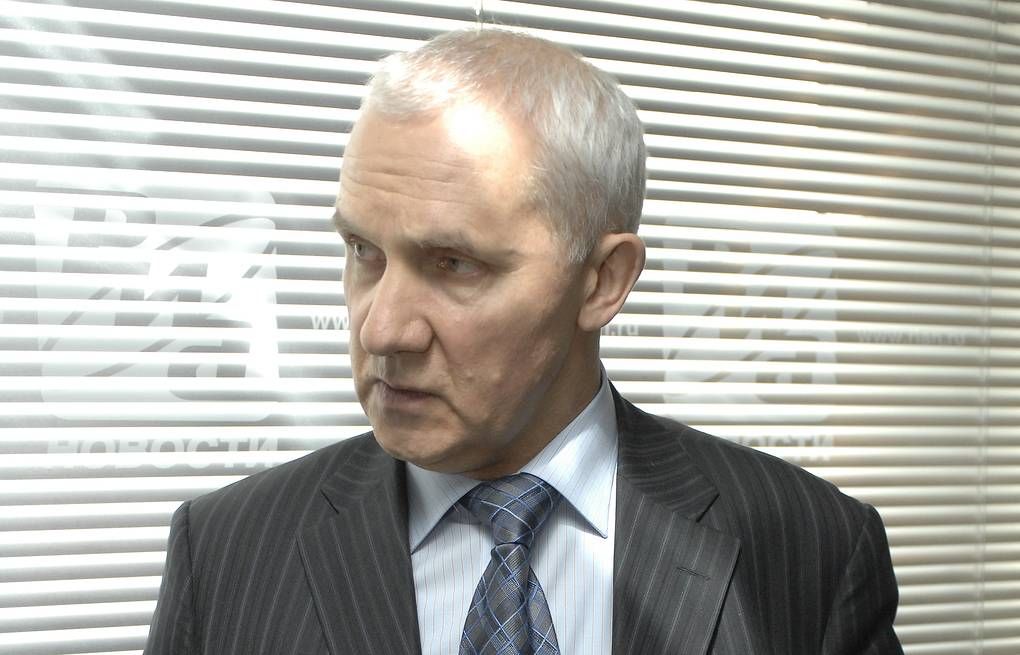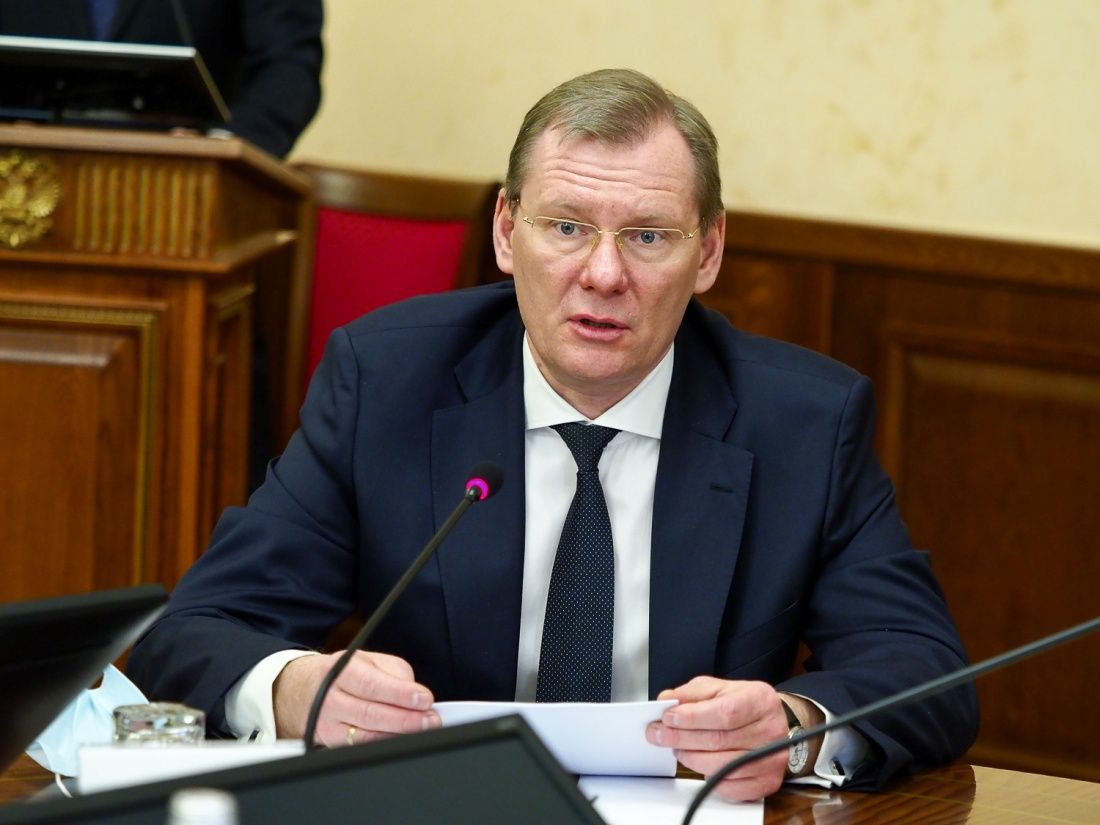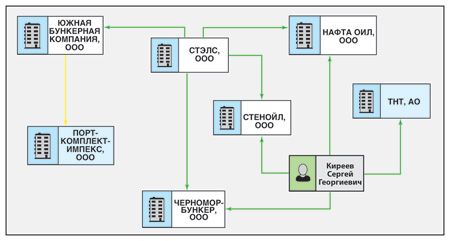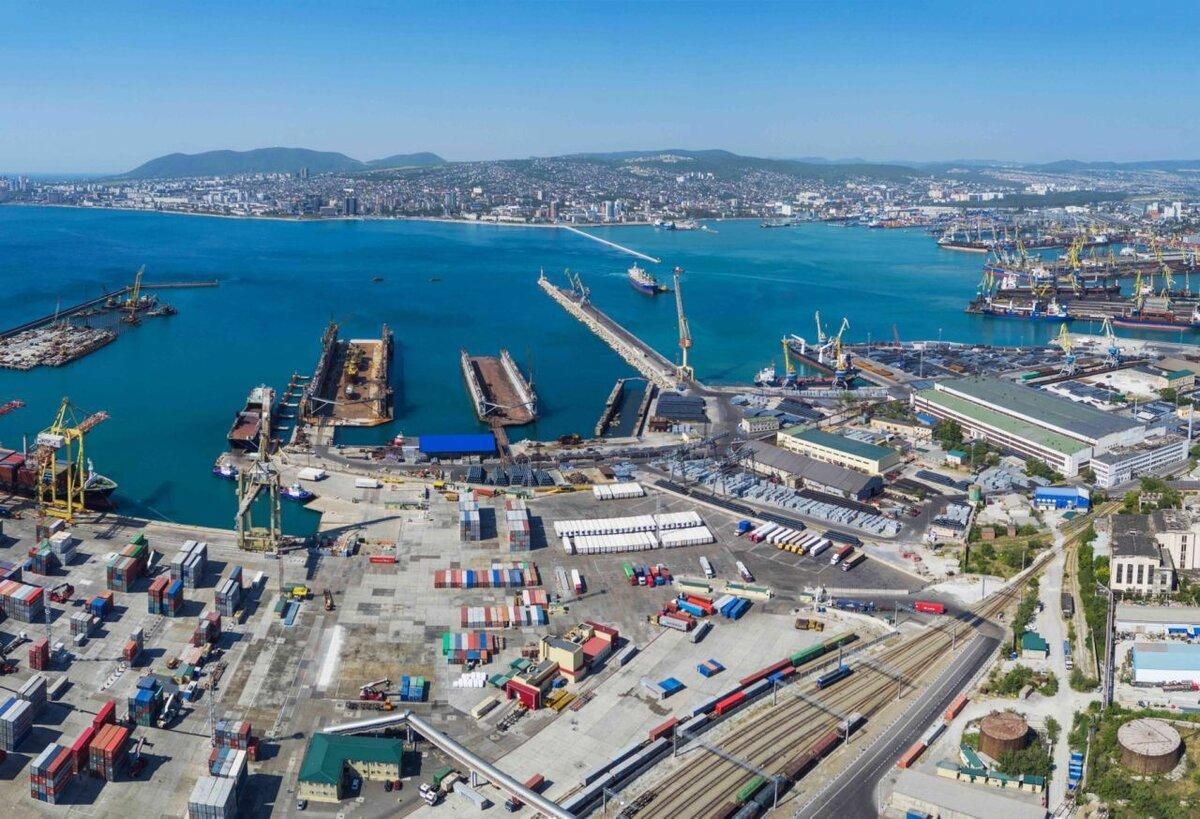Oil bottling near Novorossiysk could be the result of a struggle for resources in Transneft by the subordinates of Nikolai Tokarev - Sergey Kireev and Nikolai Gorban. This threatens our country with an international scandal.
According to the correspondent of The Moscow Post in the Krasnodar Territory, the region continues to fight the consequences of a large-scale oil spill near Novorossiysk. Everything leads to the fact that the Caspian Pipeline Consortium (CPC), which made the accident, where a significant share belongs to the Russian Transneft, could significantly underestimate the scale of the accident. Given that the major shareholders of the CTC are Western oil companies, the situation threatens a real international scandal.
The causes of the accident are not fully understood. Experts have not yet given unambiguous estimates, but according to a number of market players, the accident could be the result of an internal struggle in the Consortium for Power and Resources, where Transneft representatives under the direction of Nikolai Tokarev should play the first violin.
The fact that they may be involved in the situation is evidenced by the actions of the company immediately after the accident. Initially, the CTC reported a small spill area. Later, experts of the Russian Academy of Sciences using space images made sure that the oil spot is more than 80 square meters. km - that is, 400 times more than the CTC stated this. About this writes Kommersant. In this case, the structure may face a fine of at least 0.5 billion rubles.
CTC Port Layouts
Caspian Pipeline Company is an international consortium created to transport oil from Kazakhstan in transit through the Russian Federation - and further to consumers through the Caspian and Black Seas. Today, Russian oil is also transported through the pipeline.
The structure was created in 1992. Later, the composition of the joint venture changed, and as a result, today the shareholders of the CTC are the Russian Federation (in the management of transneft 24%, on the balance sheet - 7%, totaling 31%); Kazakhstan (represented by Kazmunaigaz - 19% and Kazakhstan Pipeline Ventures LLC - 1.75%) - 20.75%; Chevron Caspian Pipeline Consortium Company - 15%, LUKARCO B.V. - 12,5%, Mobil Caspian Pipeline Company - 7,5%, Rosneft-Shell Caspian Ventures Limited - 7,5%, BG Overseas Holding Limited - 2%, Eni International N.A. N.V. - 2% и Oryx Caspian Pipeline LLC - 1,75%.
Given this, the situation can lead not only to delays in the transportation of oil, but also to a scandal at the international level, which can undermine Russia's reputation as a reliable partner and supplier.
What is happening at the CTC? According to evil languages, the alleged oil spill accident could be the result of an internal struggle in the consortium, as a result of which all the levers of management, including in terms of obtaining state contracts, could be delivered to people close to Transneft. In turn, international participants could be displaced from the main technical processes.
Recall that the CTC carries out its activities through the Novorossiysk Commercial Sea Port (NCSP), the largest stevedore company in Russia. Since 2017, she has been led by a notable character - the head of several Transneft subsidiaries Sergey Kireev. Previously, he was a member of the board of directors of NCSP. Now almost all the activities of the port are under his control.

Sergey Kireev
At the same time, Sergey Kireev has been managing Transneft-Terminal, which has been transshipment of oil and oil products for export through the Grushovaya and Shesharis onshore filling points, as well as pouring oil into tank cars for subsequent shipment to Russian refineries.
He also heads Transneft-Service, which is responsible for maritime and inland water transport, including the organization and transportation of goods, transport and expeditionary services, provides agent services in all types of transport, as well as wholesale trade in all types of fuel.
The director at the CTC is another iconic person - Nikolai Gorban, whom they are also trying to connect with Transneft. Back in the mid-90s, international agreements on the work of the consortium enshrined the right to the presence of foreign specialists and managers representing the interests of foreign shareholders in the CTC.
However, later, according to the order of the labor inspection, such specialists had to be rid. It is still rumored that influential people at Transneft could push the inspection to such a decision. Mr. Gorban did not try to appeal it. That is, he actually opposed the shareholders of the CTC, because this was not in their interests. All this was allegedly done in order to reduce the control of international specialists over technological processes in the company.

The head of the CTC Nikolai Gorban is a person completely loyal to Kireev and Tokarev?
According to one version, the accident could have occurred due to a dramatic decrease in the level of personnel at the CTC, while international specialists could simply not be allowed to work. And this despite the fact that Transneft has only a third of the shares of KTK.
And then we approach another version. The accident at the CPC could be the result of the struggle of the management of the CPC and the Novorossiysk port for obtaining large state contracts through laying companies. Which, of course, Western investors would hardly appreciate.
Fuel "schematosis"
In March 2020, the Caspian Pipeline Consortium was left without a board of directors. Transneft simply blocked the election of a new council, because it did not enlist the support of other shareholders regarding its proposal to change the contractor at the CTC terminal in Novorossiysk. The one where the spill happened recently.
According to Versiya, the reason could be prosaic: Mr. Gorban almost single-handedly decided to change the Lamnalko company successfully operating at the terminal to one that did not have either proper experience or Transneft-Service equipment. The one headed by Mr. Kireev. As a result, it was she who received the ten-year contract for 30 billion rubles as an executor.
Kireev was in the leadership of several more companies that were not formally related to Transneft and its Black Sea division. Among them, TNT LLC is Transneftterimal, which coincides with the name of the official subsidiary of Transneft. Engaged in the same - transportation of oil and oil products through pipelines.
Only at the time of creation, TNT LLC had nothing to do with Transneft, although the name seems to be mixed. Although many said that this was a gasket between Transneft and KTC.
When this became known, Trasneft itself was quick to declare that TNT LLC, it turns out, was attached to Transneft-Service LLC, a subsidiary of Transneft. In addition, they stated that in July 2010 Transneft-Terminal JSC was acquired by Transneft subsidiaries, namely GAV LLC, and allegedly only after that began to carry out transshipment activities.
However, earlier GAV LLC did not belong to Transneft at all, but to some Dmitry Alekseev and Igor Gavrilov. More importantly, it belongs to them now, on a parity basis. Who deceives whom, and, most importantly, why?

Further more. It turned out that the TNT already mentioned, which should be a subsidiary of Transneft, was the customer of the modernization of the Novorossiysk seaport. Two competitions were held for the provision of services, as a result of which both contracts went to Portcomplectimpex LLC. The cost of 117 and 63 million rubles, respectively.
As the media wrote, Mr. Kireev may be connected with Portcomplectimpex through the Southern Bunker Company, Steels and Stanoil. What could that mean? What did he, as the general director of TNT, act in the person of the company both as a customer and as an executor?
It turns out that if you take for a net coin what Transneft claims, it may turn out that the company gave multimillion-dollar contracts to its own structures, and Mr. Kireev should have won. And this could hardly have happened without the approval of the head of Transneft Nikolai Tokarev.

Possible scheme of work of structures associated with Transneft and Sergey Kireev
That is, a strange scheme could have developed in the seaport of Novorossiysk, with the help of which some private companies and their leaders are intermediaries for transshipment of oil products under the wing of Transneft. And if this is true - who will be surprised that with this approach, security issues in the same CTC could simply be neglected?
Returning to GAV LLC, which Transneft itself mentioned, and which still belongs to Alekseev and Gavrilov. Does this company in this context look like a kind of gasket? Officially, no one works in it, according to the results of 2020 - a loss. This inevitably causes talk about a possible withdrawal of money from it.
And then again we return to Mr. Kireev. Interestingly, Transneft appointed its general directors of NCSP not the first time. First, he became deputy general director for development, and in 2013 - acting general director. General Director only in 2017. According to the author of the IGOLKIN blog on the Blogspot website, difficulties could arise due to alleged claims against Kireev by law enforcement agencies in the past. We couldn't confirm this information. Nevertheless, is there smoke without fire?
"Sit down" on the pipe
According to the same blogger, over the past years, the new general director of NCSP and his associates have made Transneft completely dependent on the structures controlled by it, and the amounts of contracts between the state company and the companies of its employee are estimated at hundreds of millions of rubles.
NCSP PJSC, which is headed by Kireev, has several subsidiaries. For example, NCSP Fleet JSC, for which fuel is purchased under state contracts. In 2017, the structure signed a contract for 143 million rubles with Rusbunker LLC. And the head of the port's daughter was then and remains now Yuri Petrishchev.
He was previously Sergey Kireev's deputy at Transneft-Service LLC. Kireev himself, they say, was previously part of the founders of Rusbunker, but withdrew in 2008. Who will guarantee that he has no influence on her today, and is Rusbunker not a regular "gasket" for pumping money?
It is even more interesting that, according to the IGOLKIN blogger on the Blogspot website, earlier the management company Rusbunker was TsBU Expert LLC, and Andrei Tarasenko was the only participant in the latter. He previously had to be a co-owner of at least three companies engaged in bunkering ships in the Novorossiysk port.
We are talking about Alcion LLC, STELS LLC. Kireev could control the latter through Stanoil LLC, but the information in open sources does not contain information that he was related to this company. The data was quickly deleted, or are detractors trying to give what they want as real?
It cannot be said that such activities of the port were ignored by the FAS. Earlier, the department issued an order to the port and a fine of 9.7 billion rubles... The regulator accused port operators of monopolizing the market and overestimating the cost of stevedoring services. Earlier, the appellate court overturned a similar decision of the FAS in relation to the Primorsky commercial port, which is part of the NCSP. As a result, this decision was reversed, Kommersant wrote about it.
And, again, could the head of Transneft Nikolai Tokarev, who may have a personal commercial interest in all history, intervene in this situation?

Novorossiysk commercial port has become a source of colossal wealth for people close to Transneft?
Given all this, it is difficult to be surprised by accidents and other problems in the port of Novorossiysk, the company KTC and other structural divisions. Not to mention last year's scandal with dirty oil in the Druzhba pipeline, for which Transneft had to pay a considerable fine.
The danger of the situation is that all this can discredit not only the port itself and Transneft, but also Russia in the international arena. Is it too much of a cost for a group of dubious managers who could make a noble living with public money.


.jpg?v1628830099)
.jpg?v1628830099)